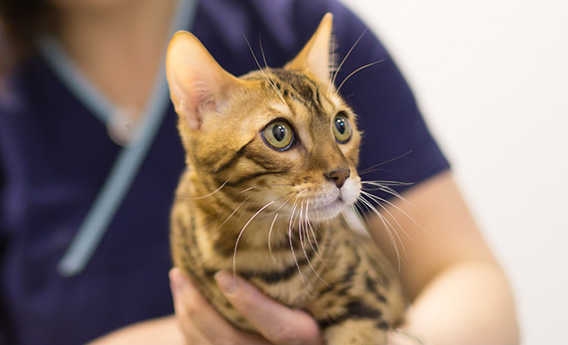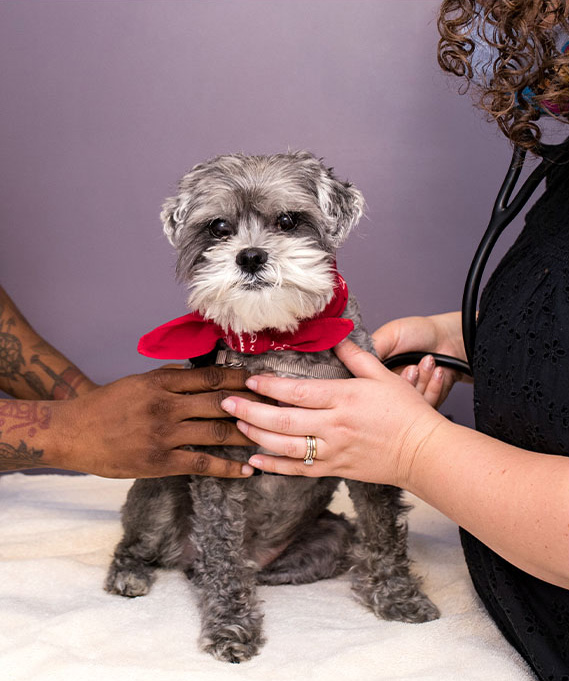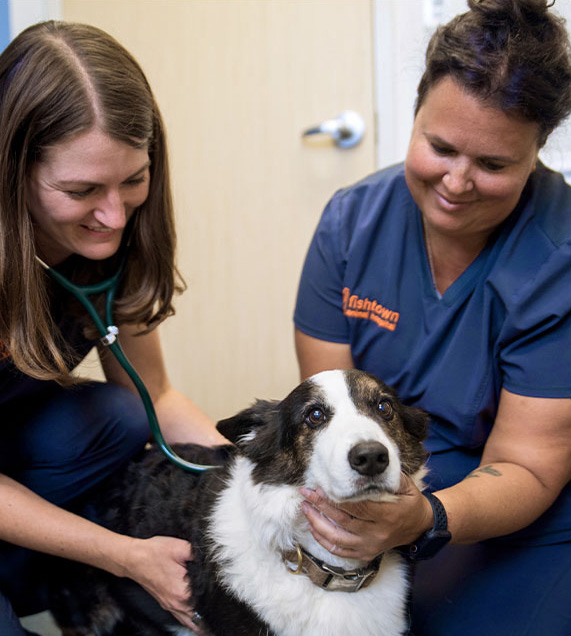Wellness & vaccination services
Annual & biannual checkups/wellness visits
It is recommended for your companion to see a veterinarian at least once each year. For pets 9 years old and older, pets on chronic medication, or pets with underlying medical conditions, biannual examinations are recommended.
Comprehensive Wellness Exams
- Checking body weight & temperature check Looking at the eyes, ears, nose, mouth/teeth, hair coat, and skin
- Evaluating the heart, lungs, abdomen, and lymph nodes
- Checking muscles and joints
- Performing diagnostic tests to check for changes in your pet’s health:
- Bloodwork and urinalysis
- Digital radiographs (X-rays)
- Ultrasound
Please note that while we do check your pet’s mouth and dental health at these wellness checkups, if additional dental work is needed, we will schedule a followup dental appointment for your pet.

Vaccinations are a critical part of your pet’s health, and can help protect your pets from fatal diseases such as rabies and lyme disease. The rabies vaccine is required by law in both Pennsylvania and New Jersey.
Other vaccines are recommended based on an animal’s individual lifestyle. Your veterinarian will make a suggestion about which vaccines your pet should receive during your visit.
General Vaccination Guidelines
These are the vaccinations that the following animals need. For more info, please contact us.
Indoor cats
- Rabies
- FVRCP (feline distemper vaccine)
Outdoor cats
- Rabies
- FVRP
- Feline leukemia vaccine
All Dogs
- Rabies
- DAPP (canine distemper, adenovirus for hepatitis, parainfluenza, parvovirus)
- Bordatella (kennel cough)
- Lyme
- Leptospirosis
Vaccinating your young & elderly pets
Puppies and kittens receive serial vaccines every 3-4 weeks starting at 8 weeks of age, with the last dose between 16 weeks-18 weeks of age. Elderly pets or pets with underlying medical conditions may not be vaccinated.
We also offer the Titer option for dogs, which is a blood test that can assess the level of antibodies present within the blood and determine if additional vaccination is needed.
Antibodies become present in the blood upon either exposure to a disease-causing organism, such as a virus, or from the vaccine. A titer can help reduce the potential risk factors of vaccinating senior pets and can be a great tool in maintaining the health of your pet.

